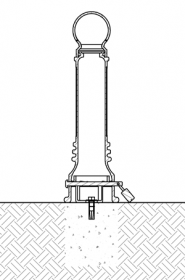Installing Removable Bollards using Concrete Inserts in Existing Concrete
Reliance Foundry’s decorative bollards can be made removable with removable mounts using drop-in concrete inserts. When installed with this mounting system, a bollard can be removed by simply unfastening a padlock and removing a pin that runs through the center of the bollard’s base. This installation method allows for the convenience of removable bollards to be combined with the aesthetics of traditional bollards.
With this installation method, the bollard is intended to act solely as a visual traffic deterrent to restrict or limit access to particular areas. It is important to note that the bollard will offer little impact resistance.
PARTS LIST
|
# |
PART |
QTY |
|---|---|---|
|
1 |
Bollard Base |
1 |
|
2 |
Bollard Cap |
1 |
|
3 |
3/4″ Drop-In Concrete Insert |
1 |
|
4 |
1″ Removable Mount |
1 |
|
5 |
3/4″ Washer |
1 |
|
6 |
3/4″ Hex Bolt |
1 |
|
7 |
Hexagon Socket Set Screw |
3 |
|
8 |
Plastic Plug |
3 |
|
9 |
Lock Pin |
1 |
|
10 |
Padlock (optional) |
1 |
INSTALLATION EQUIPMENT
|
Auger |
Dirt Tamper |
|
Level |
3/16″ Hex Key |
|
Chalk/Marker |
Measuring Tape |
|
1-1/2″ Wrench |
|
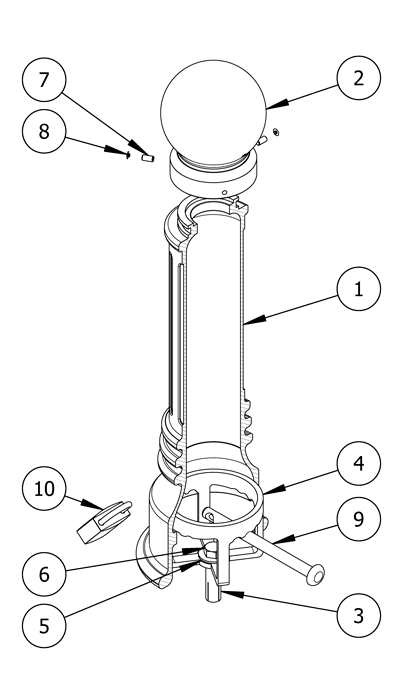
NOTE
- To protect the finish, keep bollards in original packaging until the exact moment of installation.
- Handle with care to avoid scratching or damaging bollard surfaces as abrasions will lead to rust.
- Once scratched, bollards cannot be repaired to original form without re-finishing the entire surface.
Before installation
Check for hazards
Always check for hazards such as water pipes, gas lines, and underground wiring before drilling.
Clean the surface
Dirt and debris can affect the line of sight and disrupt placement of the bollards.
Use a broom or pressure washer to clean the concrete surface prior to bollard installation.
Study the site plans
Site plans are generally created by the architect of the project.
Refer to site plans to locate and mark the precise center point of each bollard.
For secure installation, ensure there is a minimum radius(1) of solid concrete around each mark.
Drill the hole
Create pilot hole
Tap a pilot divot hole in the center of each mark.
This will prevent the hammer drill or rotary hammer from drifting while boring the hole.
Set the depth control on the hammer drill (or rotary hammer) to 3-1/8″
If depth control is not available, mark 3-1/8″ on the masonry bit.
Drill the hole
Drill a hole that has a 1″ diameter and 3-1/8″ depth.
Drill on high speed, using the hammer function if available.
Check the masonry bit often to ensure it remains free of debris.
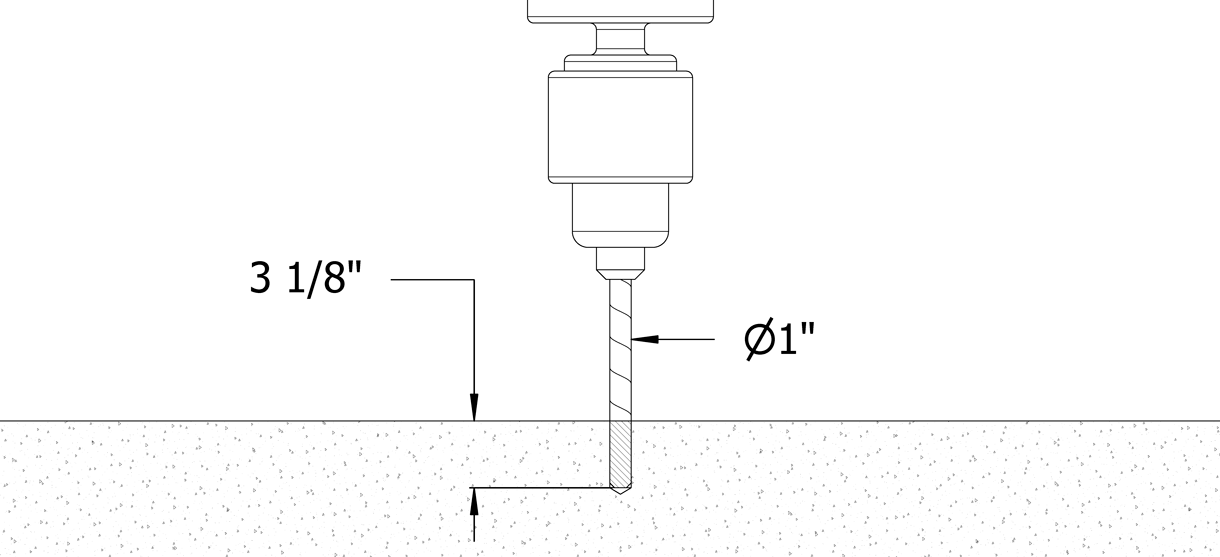
Secure the bollard
Clear the hole
Clear the hole of all debris and/or standing water using the vacuum.
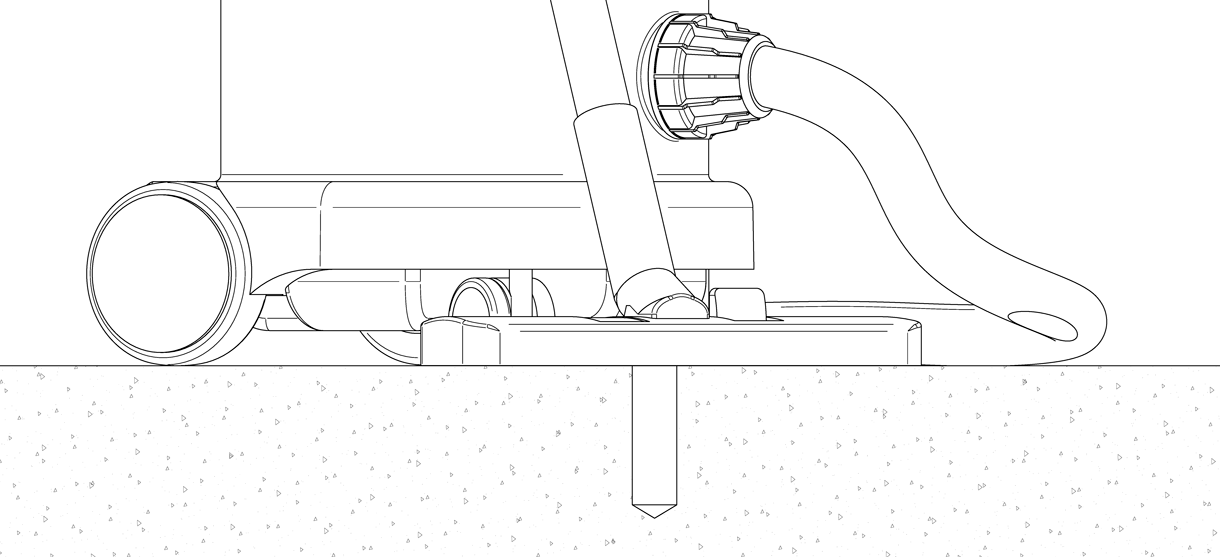
Tap the drop-in insert into the hole and set concrete insert
With the slotted end facing down, drive the drop-in insert (A) down until its top sits flush with the concrete surface. Ensure that the top is perfectly level.
Insert a setting tool (B) into the threaded hole, then hammer down.
If a proper setting tool is not available, an equivalent flat-end punch can be used.
This will cause the internal expansion plug to set the concrete insert in place.
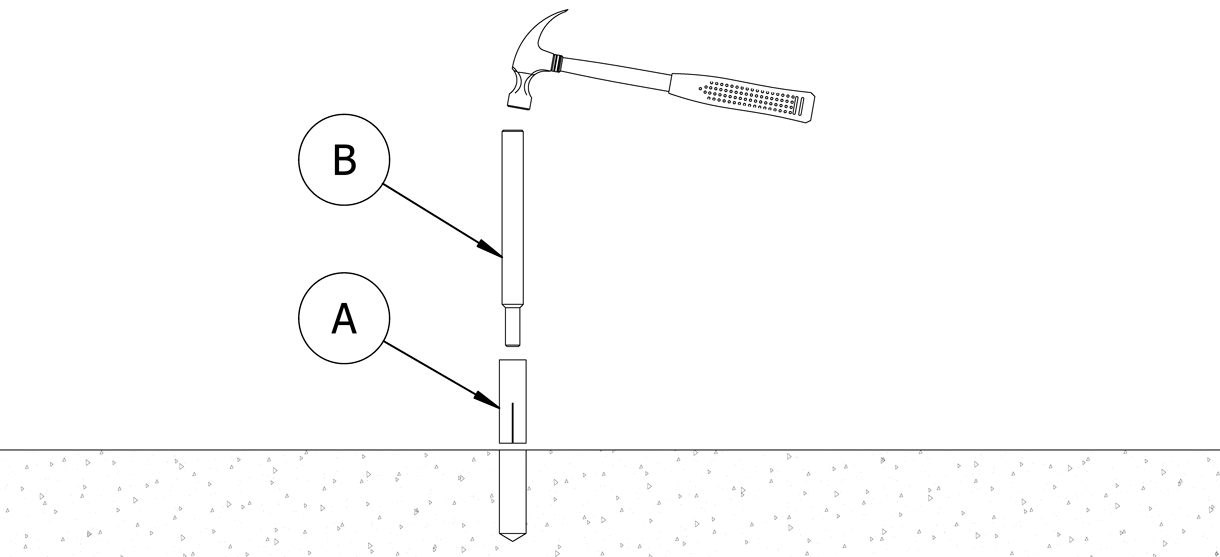
Secure the removable mount
Place the mount on top of the concrete insert so that the center holes line up. Place the washer over the top of the center hole. Insert the 3/4″ bolt and use a wrench to tighten until the mount is secure.
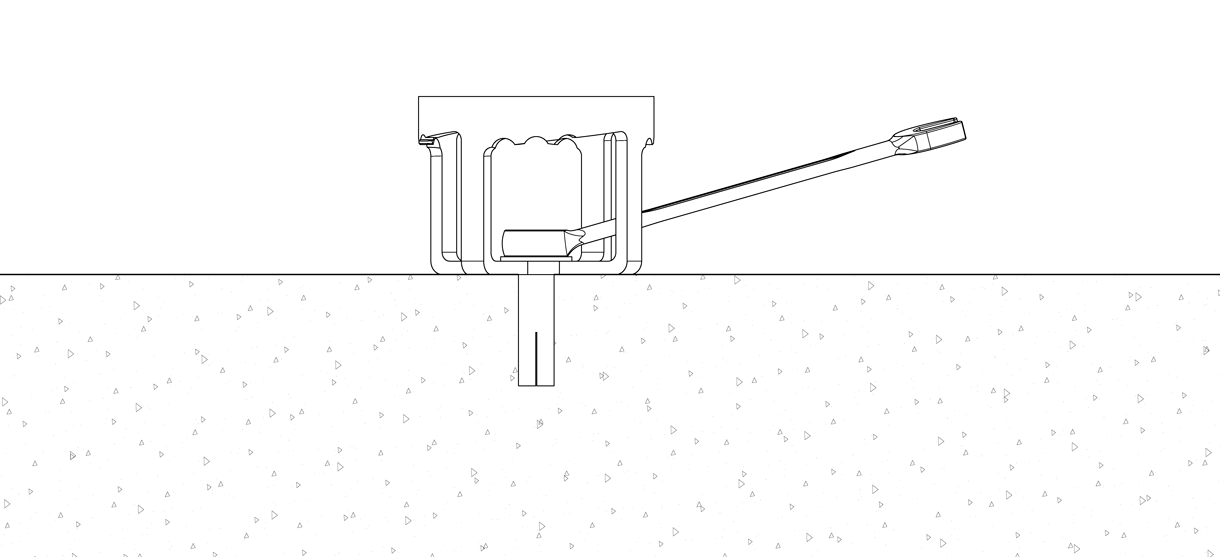
Set the bollard over the removable mount
Keep the bollard in its protective packaging. When ready to install, remove the bollard’s protective packaging.
Set the bollard base upright and place over the mount. Ensure that the bollard base is centered over the mount.
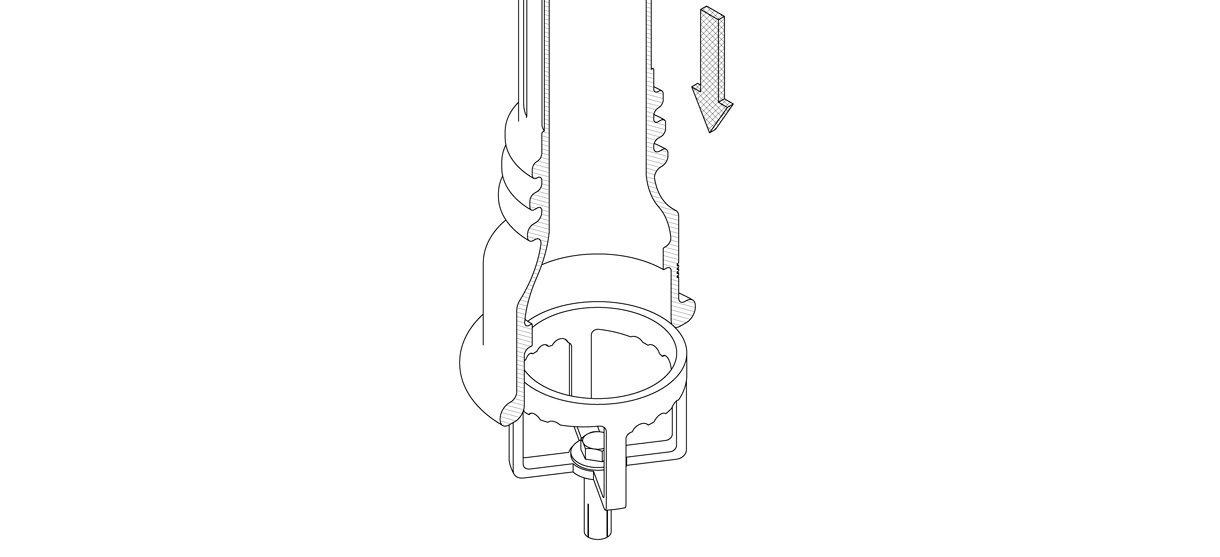
Insert the lock pin
Insert the pin through the holes of the bollard base. Twist the bollard in a clockwise motion to secure into position. Fasten the padlock.
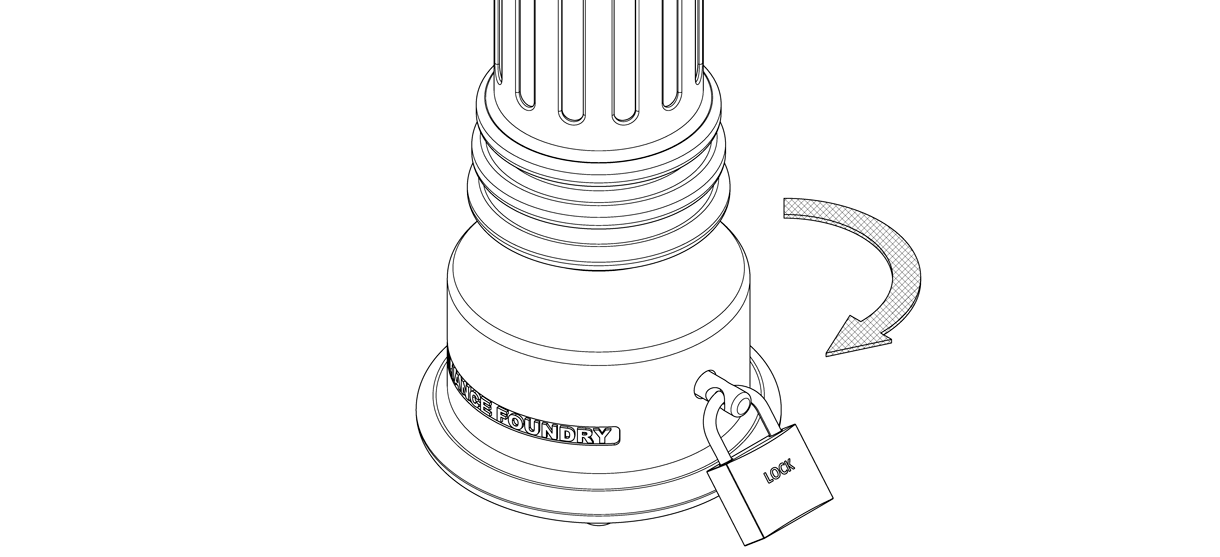
Secure the bollard cap
Remove bollard cap from its packaging.
Place the cap on the top of the shaft of the bollard.
Secure and align the cap to the bollard base with the three set screws. Tighten in equal amounts to ensure that the cap remains centered.

Place the plastic plugs (C) over the set screws.
Place the plastic plugs (B) over the set screws.
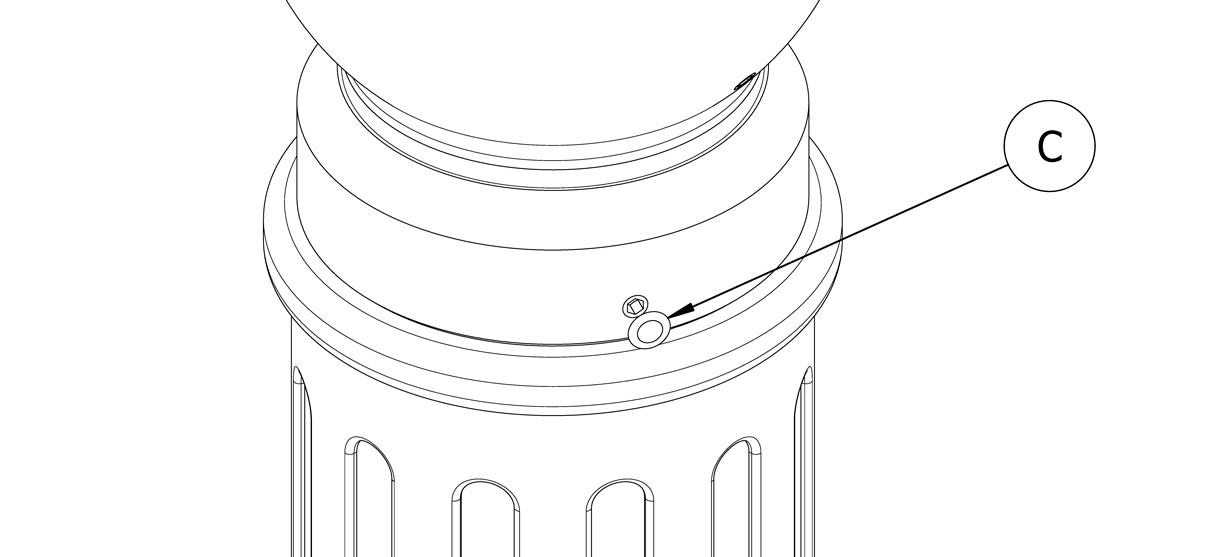
Note: The bollard cap can remain intact when replacing or removing bollards in the future.
Inspect
Inspect the installation
From a distance, examine the plane of view.
Ensure the bollard is plumb to the surface, and the surface is flat.
Check the bollard for any signs of surface damage
For damage repair or other servicing needs, please contact Reliance Foundry’s sales department.
Care and maintenance
Reliance Foundry manufactures its products to the highest design standards to ensure their durability. Reliance Foundry’s bollards are finished with long-lasting powder coating. In most North American environments, routine inspections and cleaning will ensure that bollards retain their aesthetic appeal. Proper care and maintenance are required to maintain the finish and ensure a full service life.
1. Concrete insert manufacturers such as www.ucanfast.com recommend an anchor spacing of 7-1/2″, and a minimum edge distance of 9″ for 100% performance.
